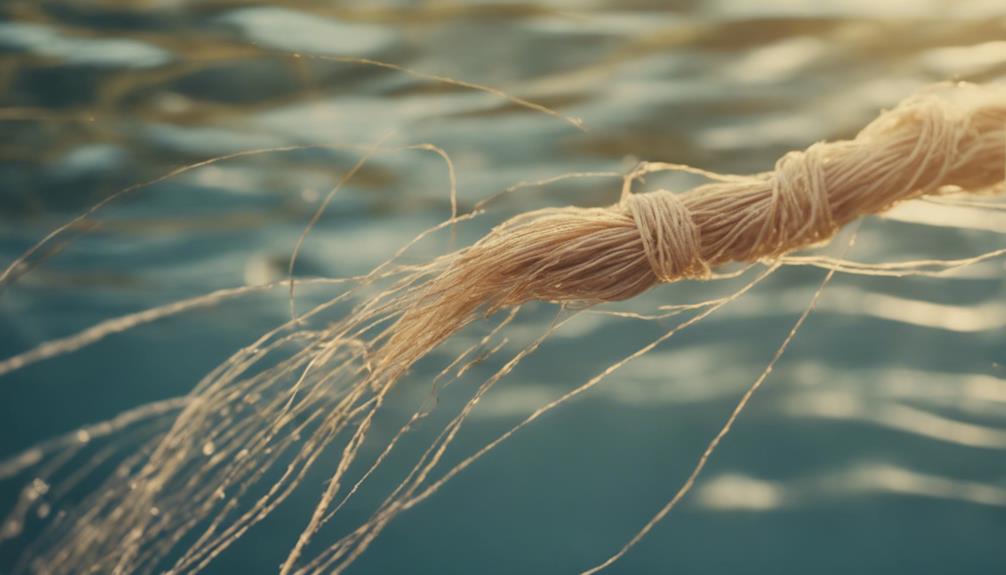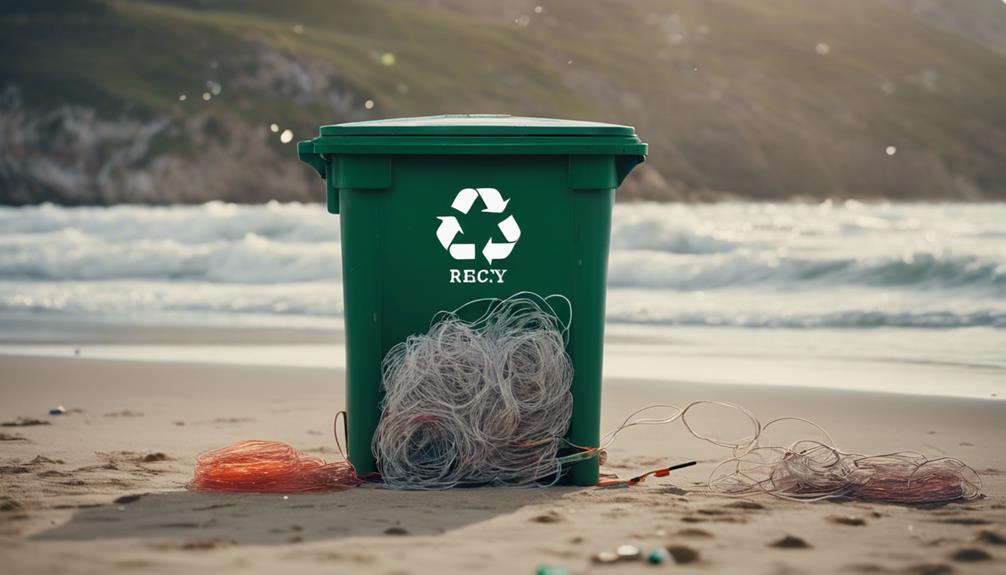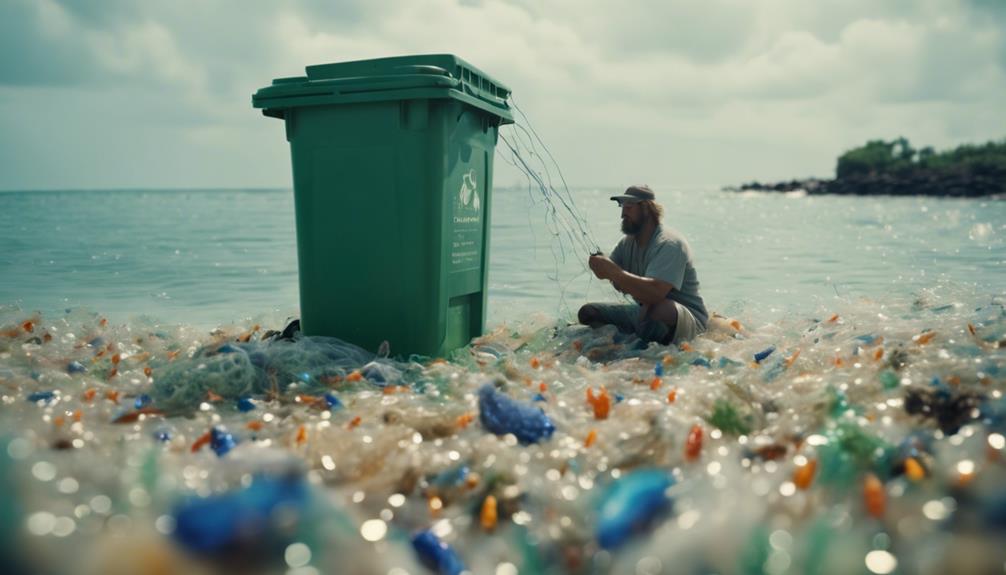If you're looking to make your line fishing gear more eco-friendly, it's as important as a fisherman with a trusty rod to contemplate a few simple tips.
Imagine a world where your gear doesn't harm the waters you so enjoy. From opting for biodegradable lures to choosing eco-friendly weights and lines, small changes can have a big impact.
Let's explore how these choices can benefit not only your fishing experience but also the environment.
Key Takeaways
- Opt for biodegradable fishing lines and gear to reduce environmental impact and protect marine ecosystems.
- Properly dispose of old fishing lines in designated recycling bins to prevent harm to wildlife.
- Choosing eco-friendly gear enhances the fishing experience while supporting a healthier marine environment.
- Sustainable practices in line fishing ensure a positive impact on the environment and aquatic habitats.
Sustainable Materials for Fishing Line

If you're looking to make your fishing gear more eco-friendly, start by considering sustainable materials for your fishing line. Opting for biodegradable fishing lines can have a positive impact on the environment. These lines are often made from plant-based polymers, recycled nylon, or even cornstarch. Not only do they reduce the environmental impact of traditional lines, but they also offer similar strength and durability.
When these biodegradable lines end up in the water, they break down naturally, minimizing the risk of entanglement for fish and other wildlife. By choosing eco-friendly options for your fishing gear, like biodegradable fishing lines, you can actively contribute to the protection of marine ecosystems.
Proper Disposal Techniques for Line Gear

To properly dispose of your line gear, remember to discard old fishing lines in designated recycling bins to prevent environmental harm.
When you use sustainable fishing gear made of eco-friendly materials, you reduce the impact on water species.
Responsible anglers know that improperly discarded gear can cause serious harm to marine life.
Cutting your fishing lines into small pieces before disposal can further reduce the risk of entanglement for wildlife.
By implementing these proper disposal techniques, you contribute to sustainable fishing practices and help protect marine ecosystems from pollution.
Conservation Practices for Line Fishing

Considering the importance of protecting marine ecosystems and wildlife, adopting conservation practices for line fishing is essential.
When it comes to sustainable fishing, choosing biodegradable Fishing Line made by manufacturers who prioritize eco-friendly materials is a great start. Opt for hooks and sinkers that are also biodegradable to reduce the environmental impact of lost gear.
By using Eco Fishing Tackle, you can take active steps towards preserving aquatic habitats and marine life. Remember, proper disposal of fishing lines is vital to prevent harm to wildlife.
Sustainable gear not only benefits the environment but also guarantees that your fishing practices align with conservation efforts. Make a positive impact by incorporating these practices into your fishing routine.
Conclusion
So there you have it! By choosing biodegradable lures, eco-friendly weights, and proper disposal techniques for your fishing gear, you can make a big difference in protecting our environment and aquatic habitats.
Remember, every small change in your gear choices can contribute to sustainable fishing practices and conservation efforts.
Keep up the good work and happy fishing!
👨👩👧👦 Dwight’s a married dad of 4 who loves to cast a line 🎣 into both fresh and salt waters. His heart belongs to his family and the sea. 🌊 #FamilyMan #FishingLife #DadOf4 🐟✨

